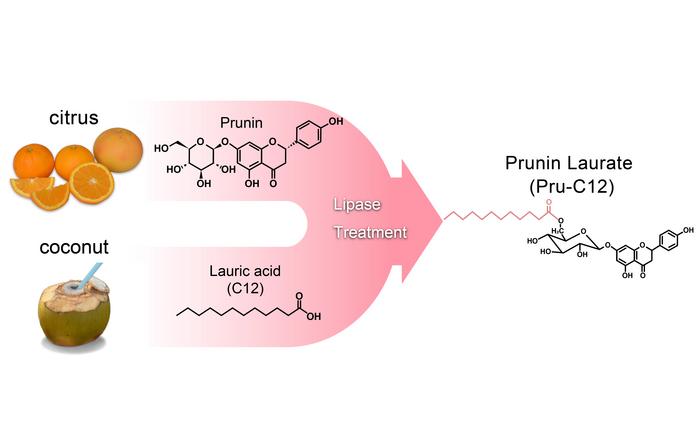Periodontal disease is an inflammatory disease caused by a periodontal pathogenic bacteria infection that affects oral and internal health. Good oral care is essential for prevention, but most over-the-counter oral hygiene products are disinfectants that can be highly irritating. This makes them unsuitable for use by young children and the elderly, who are susceptible to periodontal disease.

Credit: Osaka Metropolitan University
Periodontal disease is an inflammatory disease caused by a periodontal pathogenic bacteria infection that affects oral and internal health. Good oral care is essential for prevention, but most over-the-counter oral hygiene products are disinfectants that can be highly irritating. This makes them unsuitable for use by young children and the elderly, who are susceptible to periodontal disease.
To find an antibacterial that is easy to use and effective in preventing periodontal disease at all ages, Professor Shigeki Kamitani of Osaka Metropolitan University’s Graduate School of Human Life and Ecology led a research team in verifying the antibacterial effect of seven different compounds. Prunin laurate (Pru-C12) and its analogs were tested against the periodontal pathogenic bacteria, Porphyromonas gingivalis.
The results showed that while several of the compounds inhibited bacterial growth, Pru-C12, which can be derived from biomass such as that of citrus plants and coconut-derived components, had the highest antimicrobial effect.
“Pru-C12 is tasteless and hypoallergenic,” Professor Kamitani stated. “If its safety in humans is confirmed in the future, it could be an inexpensive antimicrobial solution.”
The findings were published in Foods.
###
About OMU
Established in Osaka as one of the largest public universities in Japan, Osaka Metropolitan University is committed to shaping the future of society through “Convergence of Knowledge” and the promotion of world-class research. For more research news, visit and follow us on social media: X, Facebook, Instagram, LinkedIn.
Journal
Foods
Method of Research
Experimental study
Subject of Research
Animals
Article Title
Prunin Laurate Derived from Natural Substances Shows Antibacterial Activity against the Periodontal Pathogen Porphyromonas gingivalis
Article Publication Date
18-Jun-2024
COI Statement
The authors declare no conflicts of interest.



